What is relatively new is using plant activator compounds to generate specific physiological pathogen defence responses via gene activation. Plant activators are molecules that trigger innate immune system responses that prime plant defences prior to infection.
Here is a quick summary of the different types of plant activators:
The AMPs - associated molecular pattern molecules that lead to pattern triggered immunity (typically non-pathogen-specific physiological responses, including the activation of defence genes and other cellular responses). The AMPs include:
- PAMPs/MAMPs - pathogen/microbial related triggers
- DAMPs - damage related triggers
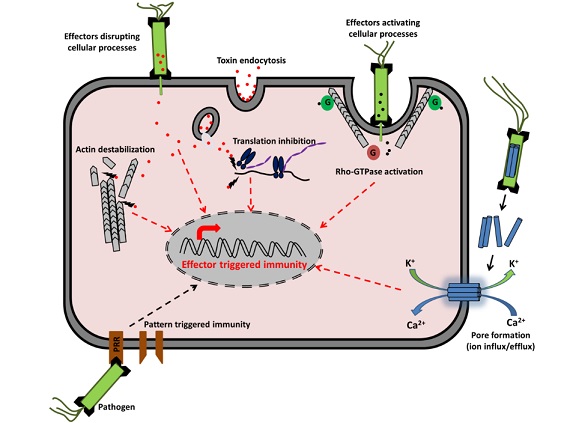
Host cell detection of a pathogen via their toxins. CC- Infectiousdis
'Pheromone traps could be adapted to constantly apply essential oil vapour in vineyards in the future'Potential plant activators investigated for use on grapevines include chitosan, 3-Aminobutanoic acid, disaccharides (turanose, isomaltulose, trehalose), oak extracts and methyl jasmonate.
In a brand new study, Dr Markus Rienth (2019) added essential oils to the list of potential plant activator candidates for grapevines. Here are the key points of interest:
- Oregano essential oil has shown a high level of control over Plasmopara viticola in several studies;
- Control was significantly better in laboratory studies compared to field trials, probably due to poor rainfastness and degradation;
- Previous studies demonstrated issues with phytotoxicity (leaf “burning”) when applied in the liquid phase;
- In the current study, constant fumigation (vapour phase as opposed to liquid phase) also showed a very high level of control (up to 98%);
- Contrary to previous assumptions that essential oils only have a direct antagonistic effect on pathogens, oregano essential oil was found to have a plant activator effect, ie. gene activation;
- The authors indicate that fumigation technologies, ie. pheromone traps, could be adapted to constantly apply essential oil vapour in vineyards in the future.
- The potential for aroma transfer to berries is also being investigated, ie. in a similar manner to smoke taint from bushfires and the transfer of eucalyptus aroma from perimeter trees;
- Cover cropping options are being discussed.
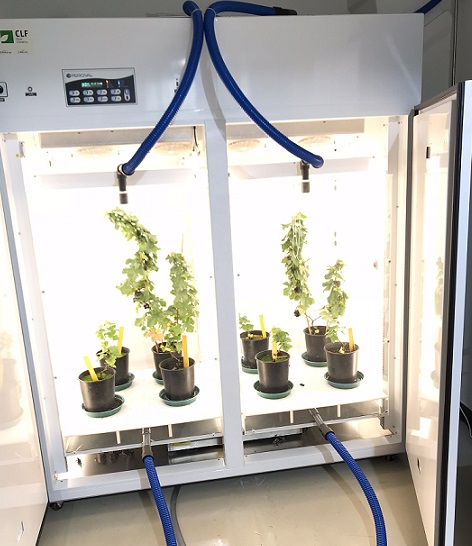
The incubation chamber used in the study. Photos courtesy of Prof Dr Markus Rienth, Changins, HES-SO University of Applied Sciences and Arts Western Switzerland, Nyon, Switzerland.
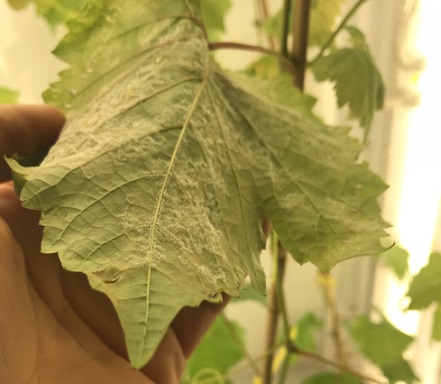
An untreated leaf, after incubation (above). Below: A leaf fumigated with oregano essential oil, after incubation.
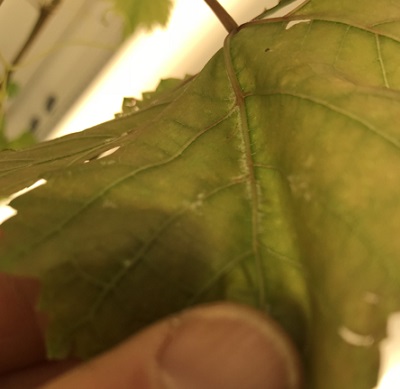
James Wright is an international viticulture and management consultant and author of www.vitisynth.com and the newsletter VitiSynthesis.


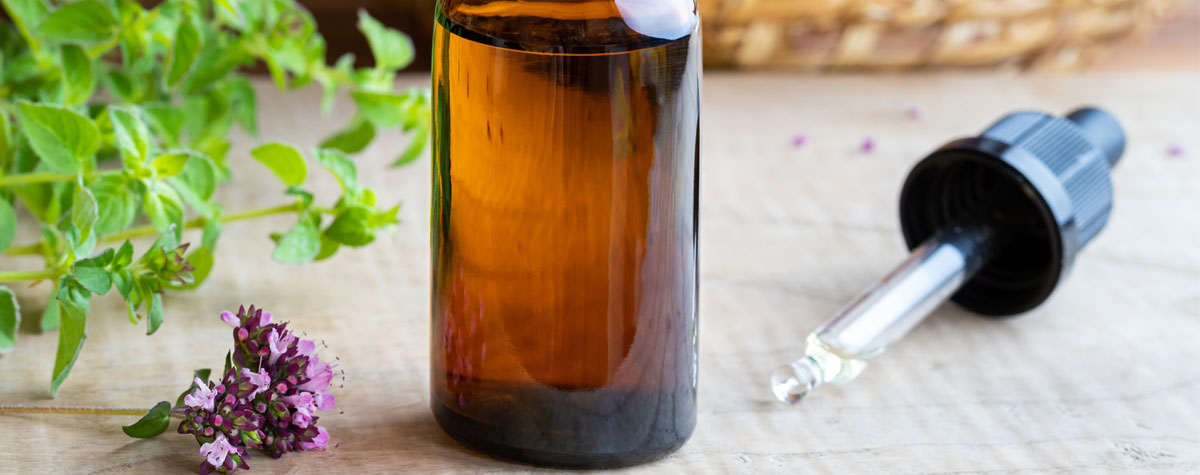








.png)









